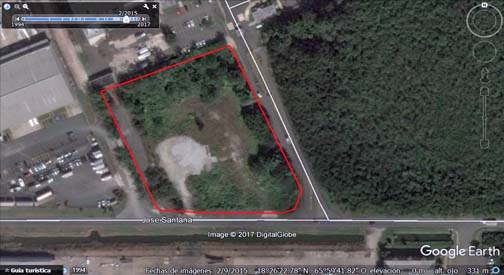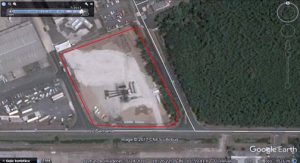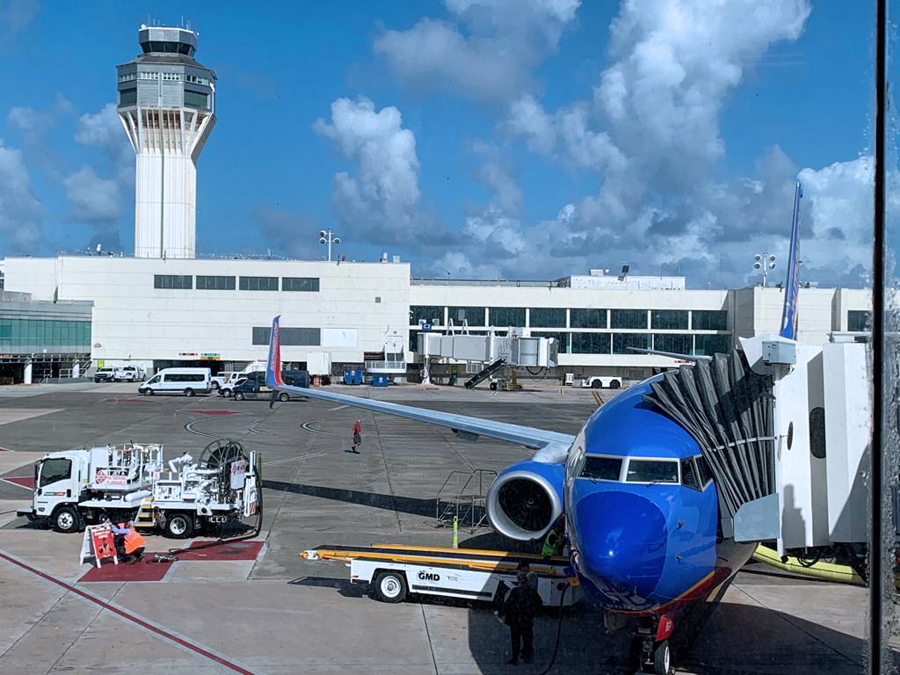Carolina Catering Corp., Aerostar spar over cement plant

Airline food service provider Carolina Catering Corp. on Monday blasted the management of the Luis Muñoz Marín International Airport — Aerostar Airport Holdings — for allegedly endangering the Torrecilla Lagoon habitat through the construction of a concrete plant nearby.
The private firm, through its Attorney Joseph W. Vázquez-Matos, said construction of the plant some 60 feet from the critical habitat, which is part of the San Juan Bay Estuary, also threatens the health of passengers, employees and residents of communities surrounding the LMM.
“Aerostar and its contractor threaten the integrity of this protected area and health of passengers, airport employees and residents of the communities surrounding the airport, ” he said.
Vázquez-Matos said in May 2017, Aerostar and McCarthy Improvements Puerto Rico LLC illegally constructed a Portland Concrete Batching Plant in a field near the airport.
“The selected field is classified as ‘DT,’ which allows activities related to air transportation, but does not authorize the location of such a heavy polluting industry, unless a change of use proceeding is submitted to the Planning Board; an action that has not been taken so far,” Vázquez-Matos said.
In talks with government agencies and legal action filed in the Carolina Superior Court, the company said the illegal construction of the plant has already impacted the vegetation of the area, related to the cutting of trees and filling made to areas of the property, without the required government approvals.
The company claims Aerostar has not obtained a Certificate of Critical Habitat from the Department of Natural and Environmental Resources including the concrete plant, which would avoid a significant impact on this habitat, considering mitigation measures required by law.
“The illegal actions indicated and performed have been carried out without an environmental study to assess the impact of the plant and without taking into consideration the fact that the plant and source of emission is located about 60 feet of the mangroves adjacent to the Torrecilla Lagoon, part of the San Juan Bay estuary,” Vázquez-Matos said.
This Critical Habitat is home to among others: 160 bird species, 124 fish species, 300 species of wetland plants, and 19 species of amphibians. In addition, it is home to 17 plants and eight endangered animals, he said.
“It is evident from the data collected that Aerostar lacks any sensitivity for the protection of our environment and safeguard the health of passengers, employees and residents of the communities surrounding the international airport by illegally building a new source of emission of particulate matter containing cement, concrete and ashes, without taking into consideration the impact that this action will generate on the environment and the surrounding business community,” he said.
On Monday, Aerostar officials said CCC’s claims are “false, irresponsible and malicious.”
“It is false that Aerostar has operated or is operating a concrete plant that harms the environment or the integrity of the area or of people’s health. Aerostar is trying to, despite the malicious efforts of CCC and its affiliates, to rebuild the [LMM’s] central taxiway to meet operational needs and meet federal and local government requirements,” said Nelman Nevárez, director of operations at Aerostar.
“CCC and its affiliates have made every effort to stop the reconstruction of a critical area of the airport, which would ironically improve the LMM’s facilities, in which they operate. The reconstruction is in the process of permitting,” he said.
As opposed to CCC’s claims — the temporary plant that has an environmental compliance document — has yet to begin operations.
The location of the temporary plant, aside from being incidental to the reconstruction work, is essential to provide a certain quality of cement to be used to rebuild one of the most important areas of the airport that connects both runways, as was required by local and federal government agencies, Nevárez said.
“The airport was built more than 60 years ago, forcing improvements and reconstruction. The reconstruction of the runway is part of what has been agreed to in the public-private partnership contract between the government of Puerto Rico and Aerostar. If the runway is not rebuilt, eventually we may not be able to operate the airport,” said Nevárez, expressing surprise at CCC’s claims.
“We’re surprised expressions CCC and we are irresponsible and malicious, since they know how important this project for the airport and the plant has not operated and is not operating.” Nevarez said.
“The reconstruction of the runway, in addition to meeting federal requirements, will result in benefits to airlines and passengers, which are precisely CCC’s customers,” he said, defending Aerostar’s community involvement and respect for local and federal environmental laws.













